“I wish I had known that before I self-published.” 25 authors share what they’ve learned
In "I wish I had known that before I self-published," authors share tips and tricks they learned later that will help you now.
Affiliate Disclosure: This post contains Amazon Associates links, which means if you click on them and make a purchase, I will receive a couple of pennies (at no extra charge to you).
“I wish I had known that before I self-published my book.”
It’s a common author lament. Maybe you’ve said it, too.
Nearly everybody has a story about something they learned after they started the self-publishing process. For many, the discovery came too late to save them time, money, or trouble.
That doesn’t mean you have to make the same mistakes, though.
Lessons learned
Hoping to help new authors learn from the experiences of others, I asked self-published authors, “What do you know now about self-publishing that you wish you had known when you started?”
Here’s what they told me.
“YouTube and Google are a self-publisher’s best friend. I learned Adobe Illustrator and InDesign methods because I self-published and had next to no budget. Where there’s a will, there’s a way.”
Ashley Sutton, Overtime Is SO Over
“The one aspect of self-publishing I wish I knew when I started was to not overthink the process. There’s so much overthinking going on because you don’t want to go about it in the wrong way, but that simply complicates and slows down the process. My advice, just do it and put aside any fears you may have.”
Avni Parekh, Be The Bigger Person
“I wish I knew more about the business end of selling books. When I first decided to publish my children’s books, I wasn’t sure how to get into a distribution network and actually reach people through all sources, so I created books through an off-set printer and through IngramSpark. However, once I started getting my sales reports, I learned I was only making 7 cents a book through those online channels!
“That kind of return was not going to work. Luckily, I was able to get connected to a distributor with a sales team to help run my ads and generate higher returns. But if I had known this sooner, I could’ve saved myself a lot of headache and money.”
Brooke Van Sickle, Pirates Stuck at “C”
“Finding a reputable publishing company is key. There are a lot of options and resources out there, but do your homework. Check out reviews and truly evaluate the services they provide. You want to make sure the company you chose is a good fit for your book and your brand, and not just after your pockets.”
Carenda Deonne, Perfect Patty Messed Up Devotional
“I wish I had known more about the process of marketing myself as an author. I also wish I had known more about sending out books for review before publishing. I was unaware of the impact of reviews and keywords on search rankings.”
Cassandra Fay LeClair, Being Whole: Healing from Trauma and Reclaiming My Voice
“I wish I would have known specifics about the financial investment up front. To do it right, you really need to hire a designer for artwork (~$800), establish an LLC (~$125), format/edit the book (I did this myself, but most people don’t; ~$400), obtain ISBNs and copyrights (~$200). By the time you market the book, you’re out of pocket around $2,000.”
Jessica Duemig, WARRIOR
“Start the marketing piece much earlier. As a new author, I was taking everything one step at a time, learning as I went. By the time I got to the point where the book was finished, had a cover, and was in proofreading, I started researching the publishing and marketing piece – only to learn that I was now way behind. It’s not something you can really make up; you just do what you can with the time you have.”
Joyce Kristiansson,The Last Straw, Change Your Life and the Planet – for Good
“I wish I knew when I first started how important pre-launches and publicity are in the success of publishing.”
Kathryn Starke, Amy’s Travels
“I wish I had been more “realistic” with my expectations with regard to sales of self-published books versus established authors and major publishers. It’s far easier to create a best-selling book if you are well-known or very popular.”
Kevin Darné, My Cat Won’t Bark! (A Relationship Epiphany)
“Use IngramSpark for your print books! I just learned this valuable lesson. Bookstores and libraries don’t buy from Amazon – they use IngramSpark to purchase books, and if you don’t publish there, you are missing out on many sales. Also, I have noticed the quality of the print books is higher with IngramSpark.”
K. J. Gillenwater, Aurora’s Gold
“I wish I had known how important reviews were. Once your book is live on Amazon, it’s harder to give away free copies. Many authors find reviewers before their launch, and when the book goes live, they have it listed for free for the first week or two, so the reviewers can ‘purchase’ the book. When I launch my second book, I will focus more on getting reviews in the first few months rather than sales.”
Lynn Moore, Solidarity: Finding solidarity in heartbreak, anxiety & depression
“Don’t get carried away with yourself. It’s a beginner’s mistake. I self-published my first book decades ago, long before the days of the internet. In my naive self-confidence, I paid to have a local printer make 1,000 copies. Sales were embarrassingly dismal. I resorted to giving them away wherever I could. Decades later, I am selling subsequent books through Amazon and am much more savvy about marketing. I still have 100 copies of my first book as a humbling reminder.
Marianne Jones, The Serenity Stone Murder
“I wish I had known about Amazon ads and used them right away!”
Milana Perepyolkina, Gypsy Energy Secrets: Turning a Bad Day into a Good Day No Matter What Life Throws at You
“I know now that we the writers don’t need the exclusivity to one platform. Other platforms such as Amazon, Apple, Kobo, and Scribd and more formats are better for those people who have different types of e-readers.”
Núria Añó, The Salon of Exiled Artists in California
“Creating an enjoyable book is one thing, but attracting an audience to your book is something very different. Before you begin to write, you should identify to whom you are writing your book for and what are the benefits the readers will receive from reading your book.”
Paulette Harper, Secret Places Revealed
“While I knew I would have to do the marketing myself for my self-published novel, I didn’t realize that, with the 24/7 opportunities of the internet, book marketing could become a full-time job.”
Phyllis Zimbler Miller, Mrs. Lieutenant
“You will spend 30 percent of your time writing your book and 130 percent marketing your book.”
Rae Stonehouse, Blow Your Own Horn! Personal Branding for Business Professionals
“Writing the book was the easy part. When you decide to embark on the self-publishing journey, you need to have a marketing plan zipped up and ready to launch. If you don’t shout it out from the rooftops, no one will find your book.”
Renée Bauer, PERCY’S IMPERFECTLY PERFECT FAMILY
“I didn’t realize that when you self-published a book that you had to do all of the marketing yourself since you weren’t really hiring anyone to do it.”
Shelby DeVore, Think ‘Inside’ the Box: An Essential Guide to Edible Container Gardening
“I wish I’d known earlier which tasks it made sense for me to embark on the learning curve for myself, and which ones it made sense to hire people who already knew how to do those things. Because I hadn’t published a book before, I didn’t have a full appreciation, at the outset, for the thousand things I would need to think about and do in order to publish to a professional standard, or for how time-consuming some of those things would be.”
Siri Carpenter, The Craft of Science Writing
“I wish I had known how much time and effort it takes to market a book. Some experts say you can do it in 10 to 30 minutes a day, but for the newbie trying to learn all the intricacies of book marketing, that is simply not realistic.”
Sonia Frontera, Solve the Divorce Dilemma: Do You Keep Your Husband or Do You Post Him on Craiglist?
“The biggest surprise for me was just how time-consuming the promotion side of things can be. I work in online marketing in my day job, so I thought it’d be simple – especially as I had a bit of a following on Twitter and LinkedIn already – but I underestimated how much time it takes to promote it effectively. It’s easy to think only about ‘getting it out there’ and thinking the hard work stops as soon as it appears on Amazon, but that’s not the case. So my advice to other self-published authors would be to make sure you have your promotion strategy in place way before you publish if you can.”
Steve Morgan, Anti-Sell
“Always order a printed proof before releasing the book.”
Tara Alemany, Publish with Purpose
“When I published my first book of poetry, I wish I had understood two things. One, that there’s no such thing as a perfect manuscript. Two, that your manuscript gets stronger when you recruit talented people for your project.”
Tenesha Curtis, The Newbie’s Guide to Book Development
“Reviews are hard to get. This felt like a perpetual revolving door for me: I needed people to buy my book so they could leave a review, but people didn’t want to spend the money on my book if it had no reviews. Had I known about advance review copies, and secured some reviews before launch, I think I could’ve saved myself a lot of this hassle in the beginning.”
Tim Koster, The Probability of Time
What have you learned about self-publishing that might help others? Please tell us in a comment!
Like what you’re reading? Get it delivered to your inbox every week by subscribing to the free Build Book Buzz newsletter. You’ll also get my free “Top 5 Free Book Promotion Resources” cheat sheet immediately!

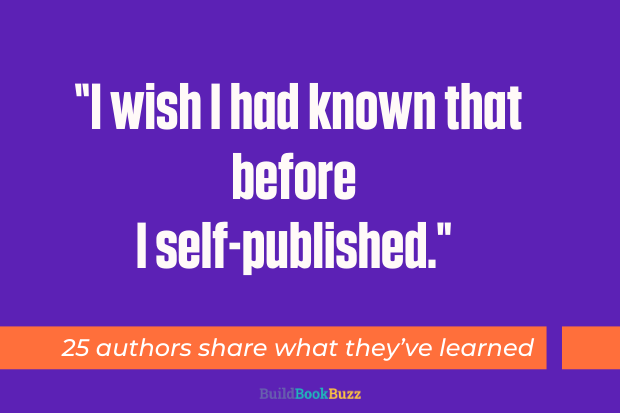
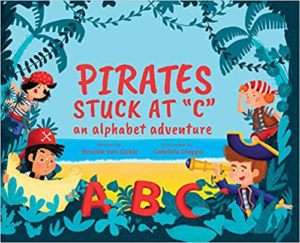
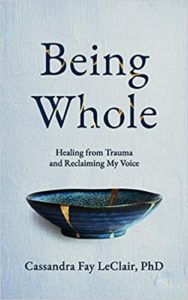
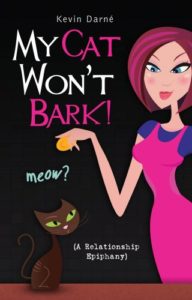
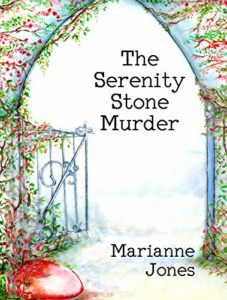
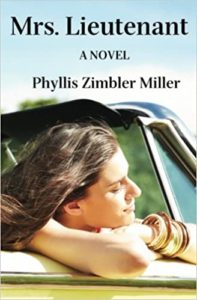
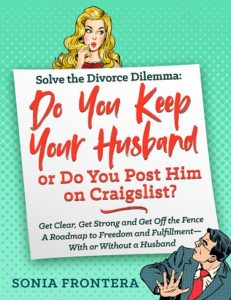
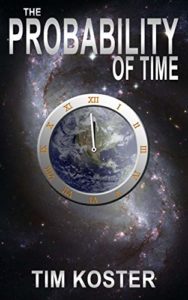
This is an awesome list and every self-publisher should read it! The thing I wish I had know was to learn the formatting requirements of where you’re going to publish and then begin the formatting as you are writing your book. With my first novel, I didn’t realize this and put in hard-tabs, multiple returns, fonts not available on kindle and more, instead of just using styles. It resulted in me having to spend a lot of additional time re-formatting my novel to keep conversion problems at a minimum.
That’s a fantastic tip, Christopher. Thank you!
Sandy
Tips from the trenches.
1. Find your tribe and join it. Fellow authors can do more to promote books than advertising.
2. Always remember that the two largest factors for readers are “I know the author and like their work” and “A trusted friend recommended it.” Ads and reviews fall way down on the list of reasons that readers pick up a book.
3. Write the book you want to read but can’t find. Trad pub authors have to keep writing the books agents and editors can sell to bookstore buyers. We don’t have to and they’re leaving a lot of money on the table.
4. Write novels in a series in a niche you like. You’re going to be spending a lot of time there. You may as well enjoy the scenery. Pick a sub-cat of one of the major niches.
5. Having a back list will pay more dividends than any other investment you can make in your career.
6. It’s not self-publishing if you don’t upload your own files to the storefront. (Aggregators like Draft2Digital and Smashwords are just that, aggregators, and functionally equivalent to uploading to storefronts.)
7. There actually is One True Path. Each one of us has to find it for ourselves – but we don’t need to search alone.
8. There is no finish line except one. “The End” only matters when it’s your epitaph.
Thanks for the great tips, Nathan. They’re gold!
I’d love your answer to the question the others answered: “What do you know now about self-publishing that you wish you had known when you started?”
Sandy
As always, another great article! So many wise words well-spoken. All of these lessons are important to know about, especially when you’re just starting. So many authors have no idea about a target audience or a marketing plan.
Many thanks and I’m glad you included the links to each author’s book.
Thanks, Peggy! Don’t you love all the wisdom these authors shared? I wanted to support the authors by linking to purchase pages. I’m not real nuts about sending all the links to Amazon, but WordPress has a plugin that creates Amazon links for me. Using that took less time than the alternatives, which would have been pretty tedious.
Sandy
Sandra, I love this. I have been sharing it with other authors. Thanks for including me.
Thanks so much for sharing your helpful tip, Carenda. That was so generous of you!
Sandy
Excellent information, thank you for sharing.
You’re welcome, John!
Sandy
Nobody mentioned ISBNs. If you’re going to write more than one book (and even then you can buy a small number) invest in a block of 100 ISBNs. You need one for every edition… ePub, paperback, audio, large print… 15 books on I really wish I’d got them in the first place… in fact I’ve been wishing that since the 4th.
Great tip! Thanks!
Sandy
Aloha Sandy! I sincerely hope you’re WELL. I still read your blog regularly, though I’ve been quieter lately.
But I must to reply to this article since, after my 4th book, I was so exhausted from waiting for the learning curve to actually curve, that I started venting on paper and ended up publishing “Surviving Self-Publishing, or Why Ernest Hemingway Committed Suicide” (under pen name Ava Greene).
Part instruction, part therapy, the book covered everything I’d been blind-sided by…in hopes of helping other ‘die-hards,’ as I labeled myself. Die-hards are super determined, have at least several books in them, and are willing to learn the publishing ropes in order to save money, profit in the long run, and produce books they’re truly satisfied with.
A few pointers in the book are:
– there are basically only 4 categories you must fall into to get a trad publishing deal
– trad publishing deals can be sorely overrated….know the pros and cons
– authors only planning to publish 1 or 2 books are better off farming out some or all of the publishing tasks — there’s too much to master for just 1 or 2 books
– every author is wildly different, no one’s on your exact path or you on theirs
– zero sales come from people browsing on Amazon who ‘stumble upon’ your book and buy it
– marketing is mandatory
– only some local shops will carry self-pub books, not Barnes & Noble or standard book stores
– self-publishing offers an opportunity to do what you please (tastefully and within reason), creative freedom if you’re prudent about it and trust yourself
– the best reviews I’ve gotten I’ve BEGGED for, from people who told me they loved the book (I’ll take 1 earnest, articulate 5-star review over any 10 flaccid 4-star ones)
– ya gotta have fun
– keep writing, don’t rush to publish, produce books you’ll be proud of forever
– writers becoming authors almost need the illusion of success…”Hope and dreams are perhaps the best fuel there is, sometimes lasting a lifetime.”
– despite everything, you end up with beautiful books that YOU wrote and YOU published
And more…with my usual candor. But oddly, since publishing that, I’ve found that self-pubbers are generally pretty tough—most want do it their own way regardless!
But that book freed me! And my next 3 were much easier and more fun! I now really enjoy the whole process because my expectations are realistic, I take my time, I have 8 books out, and…I know how to do this!
Per the advice of an author to use Ingram Spark, I visited their website to learn more about them but as I generally tend to do before formally giving an online company a chance, I chose to look up reviews on Ingram before actually getting started with them. After I discovered they have an average rating of 3 out of 1400 reviews with Trust Pilot, I said forget about it.
I wish more authors researched vendors and service providers like this before turning their money over to them, Todd. Thanks.
Sandy